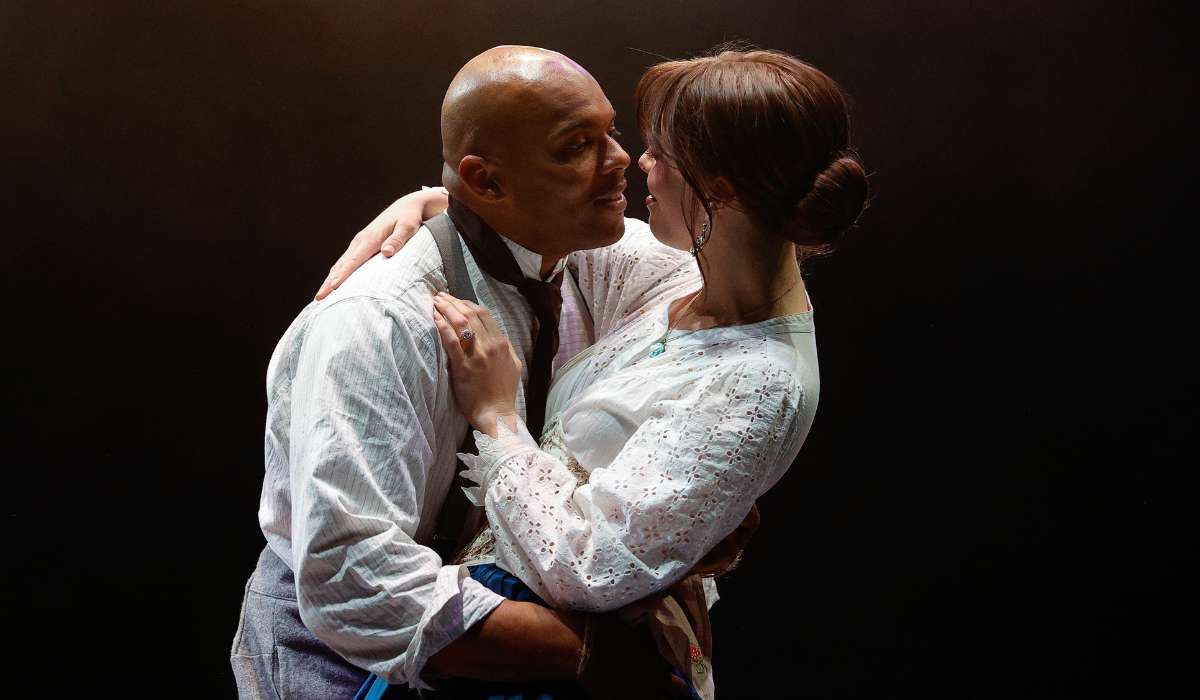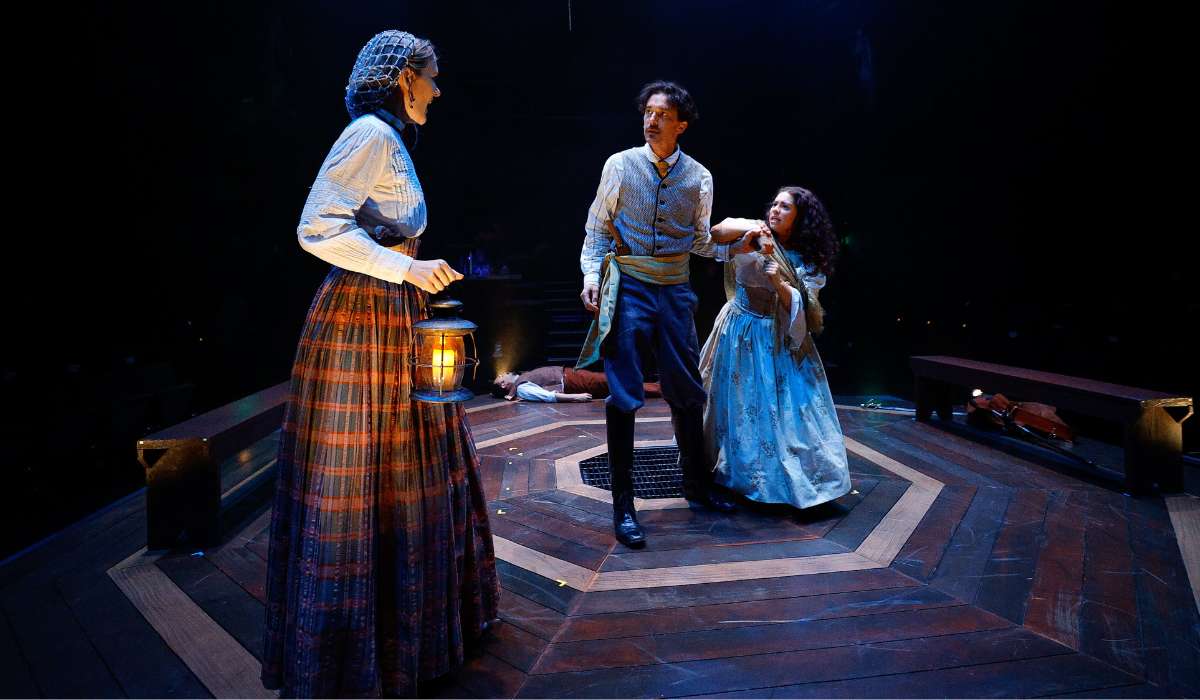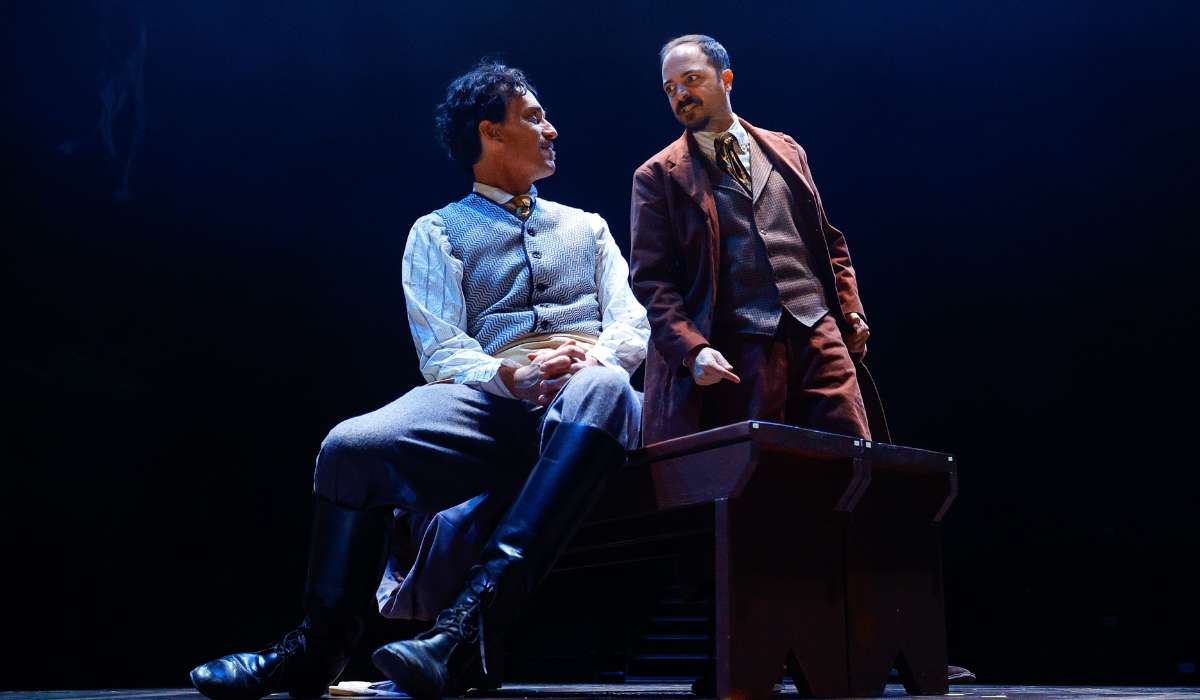Othello Dramaturgy
The Tragedy of Othello, the Moor of Venice
Written by Jack Shuttleworth, BGen, USAF (ret)
Shakespeare wrote two plays set in what was then the rich, exotic eastern city of Venice, the crossroads between east and west. It was famous for its military strength, its trading, artistic culture, religious and social diversity, and reputed licentiousness. Each of the plays—Othello and The Merchant of Venice—depict characters outside the bounds of the dominant patrician Catholic society, regulated by its Doge and Grand Council. Among the diverse nationalities and religions represented in the other classes, Jews were the most populous and regulated, compelled to live in the Ghetto, and often despised but needed for their money-lending. Shylock the Jewish moneylender in The Merchant is scorned, used, humiliated, and ultimately compelled to become a Christian. That play is often criticized as anti-semitic but the anti-semitism is of the characters not that of the author, who equally reveals Shylock’s justified hatred of his hypocritic Christian tormentors. That balance allows the audience to realize that racial or religious hatred is a human affliction.
Othello the Moor, that is, a Black man, on the other hand, was a highly respected General serving Venice with a long, heroic history. Though as a Moor, he was not the social equal of members of the patrician council, he is not an object of their scorn. Nevertheless, racial differences in 16th or 17th century London or Venice were apparent and sometimes cause for dislike or hatred. As we see in the play, Iago sneers at Othello’s race, resenting his love for Desdemona, describing it in coarse terms as the black ram assaulting the white Venetian beauty. Iago’s wife Emilia, sees Othello as a “black devil” probably voicing a common Londoner’s view. Othello’s soldiers, however, respect and honor him as a powerful, successful leader and the Council clearly honors and trusts him. Thus, racial differences, though important, are only the trigger for the rest of the events.
This play has been a dramatic success now for 400 years. It has been made so by the clarity of the conflict between what appears to be and what is, and by the powerful, individual language of its characters. The good, noble man Othello has dignity, self-possession, and a sense of power: “Keep up your bright swords for the dew will rust them,” he says commandingly when Desdemona’s father and followers come with drawn weapons. Desdemona, modest, loving and kind, displays her own strength when she acknowledges her love for the Moor before the Senate and insists on sharing his danger in Cyprus: “I saw Othello’s visage in his mind,/And to his honours and his valiant parts/Did I my soul and fortunes consecrate. . . Let me go with him.”
Iago, like Richard the Third, is the consummate Renaissance Machiavellian, the villain who relishes his own evil. Passed over for promotion, he vows to betray his trusting commander and does so with wicked delight under the appearance of loyalty. And he succeeds, of course, because he knows Othello’s “constant, loving, noble nature”. Unlike Shakespeare’s other bad men, Iago has no remorse, no troubling conscience, believing as he does in the power of man’s own will. And unlike Shakespeare’s other plays, this tragedy is the only one in which nothing supernatural appears—no witches, no magic, no ghosts, no miracle, no god of any sort. Evil and goodness exist: the characters alone are responsible for their actions. Perhaps it is that sense of one’s personal responsibility that makes this play the powerful, terrifying, sad, melancholy, unique drama that it is.
Imagining Othello Across Time in Love and War
Written by UCCS Student Dramaturges: Carla Brown, Journee Dortch, Precious Holland, AJ Jones, and Nahum Zewdiee
Imagining Elizabethan England, one might picture a predominantly white population. If that was the case, how could Shakespeare possess enough insight into Black experiences to center his tragedy Othello around a Black protagonist? The Elizabethan era witnessed the emergence of England’s first black community, although historical records trace Black individuals in England back to the Roman invasion in 43 AD. By the early Tudor period, Black people frequently found roles as musicians performing for the Royal Court. Under Elizabeth I’s reign their roles expanded to include not only dancers, entertainers and domestic servants, but emissaries from North Africa. While it falls outside of Shakespeare’s lifetime, a royal trumpeter named John Blank served Henry VII and Henry VIII, representing a documented presence of Black Tudors. Thus, the historical context suggests a richer, more diverse social fabric than one might assume. Being that Shakespeare’s theatre company often gave command performances at court, he would have been exposed to some Black lives and stories. These facts do not necessarily clarify what is one of Shakespeare’s most nuanced, complex, and controversial plays. Othello often leaves us asking more questions than satisfied with answers: Why does Iago so hate Othello? Why is Othello so quick to jealousy? Is his Blackness a driving force in the play? Is it, in fact, a play with a highly problematic racial tension?
Theatrework’s production, under the direction of Mikael Burke takes a bold stance on the play and its evergreen controversies. It sets the play not in Venice of the 16th century, but on the Confederate side of the American Civil War, the first major battle of which took place on July 21, 1861. It was a Confederate victory, and Frederick Douglas published an account that noted there were Blacks within the Confederate ranks. Most would have been men like John Parker, a slave forced to fight at gunpoint. Parker recalled praying for the Union to win, worrying about dying for a cause that was not his, and dreaming of running North. Others were slaves tasked with safeguarding their masters’ sons. Most however, were cooks and laborers, and the number of Blacks who took up arms is estimated to be between 3,000 and 10,000, which is small in comparison to the 1,082,119 total strength of the Confederate army. The few Black Confederate units that existed were quick to change sides when Union troops arrived.
If you were to ask Confederate soldiers how they felt about Black soldiers amongst their ranks you would probably receive an answer similar to that of Robert Toombs, the Confederacy's first Secretary of State and a general in Robert E. Lee's army. Toombs said that “the worst calamity that could befall us would be to gain our independence by the valor of our slaves, instead of our own.” With that being said, war is as much a game of strategy as it is numbers. During the course of war the Union had upwards of 2,128,948 soldiers. Regardless of how white Southerners felt about having Black soldiers in their ranks, they were needed.
So, it is true that someone like Othello would not have served in a leadership position in 1861, on either side of the war. But there is nowhere in the Shakespearean canon where factual history is the priority (even in the so-called “History Plays”). Shakespeare poses possibilities to an end. Theatreworks takes up the work of these great “what ifs” to pose a question about the nature of humans who war. Toombs’s point is in fact essential to the scenario posed in this production - what happens when we take for granted that the society around Othello despises him because of his race? By making that aspect of Shakespeare’s play transparent, Burke opens up the possibility of new investigations into Othello’s motivations and his actions. Why does he put up with such vileness around him? Why does a tug at his heartstrings send him raving? To whom can he go when his world crumbles? Why does violence inevitably follow after love? And why is violence not a last resort, but the only option for this man? This may not be exactly the world of Othello that Shakespeare envisioned, but it is still very much the one he wrote about.











